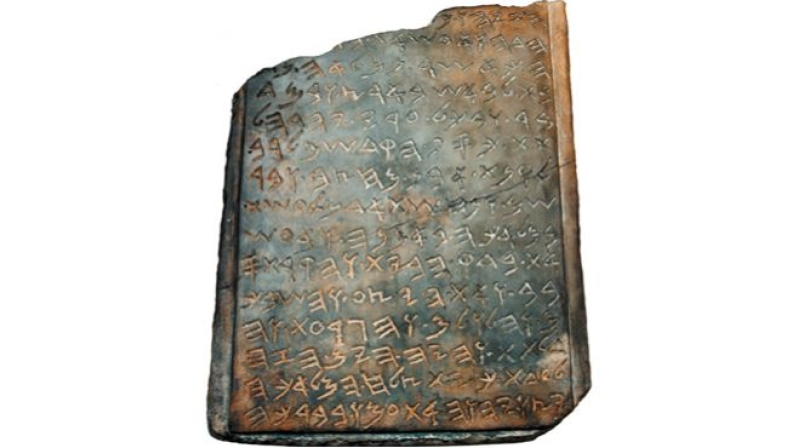
Antiquities collector Oded Golan claims that he has two ancient artifacts which the Israel Antiquities Authority (IAA) protests should be in possession of the state. While the authenticity of the inscriptions on the artifacts is a matter of debate, the IAA claims that the stones on which they are written are ancient artifacts and therefore ought to be returned to the state.
Oded Golan was acquitted in 2012 after being accused of forgery. He was on trial for several years regarding the James Ossuary and the Jehoash Tablet until the judge ruled in his favor and demanded that the artifacts be returned to him. While the IAA still maintains that the inscriptions on the stones are forged, they believe that the stones themselves are ancient and should, by law, be in possession of the state.
The Jehoash Tablet is a rectangular stone with 15 lines of instructions for repairing Solomon’s Temple, which are said to be consistent with the 2 Kings passages of the Old Testament. Solomon’s Temple was eventually torn down by the Babylonians, and King Herod had built a second temple where the Wailing Wall and the Dome of the Rock now sit. Golan also claims to have New Testament writer James’ ossuary (bone box). Its inscription reads, “James, son of Joseph, brother of Jesus.”
During the trial against the antiquities collector, the IAA had argued that the artifacts may not have even come from Israel - that they may have been imported from a foreign country; however, the IAA now claims that the stones are, in fact, ancient, and is insisting that the state confiscate Golan’s artifacts. Matthew Kalman reports that in response to the IAA’s request, presiding Judge Farkash said, “The state insisted on its view that this was not an antiquity, but a forged antiquity. Since, according to the state, it is not an antiquity, it cannot now contend that it owns the tablet according to the Antiquities Law, and therefore by law it should be returned to Golan.”
The Israeli Supreme Court will now rule on the matter.






